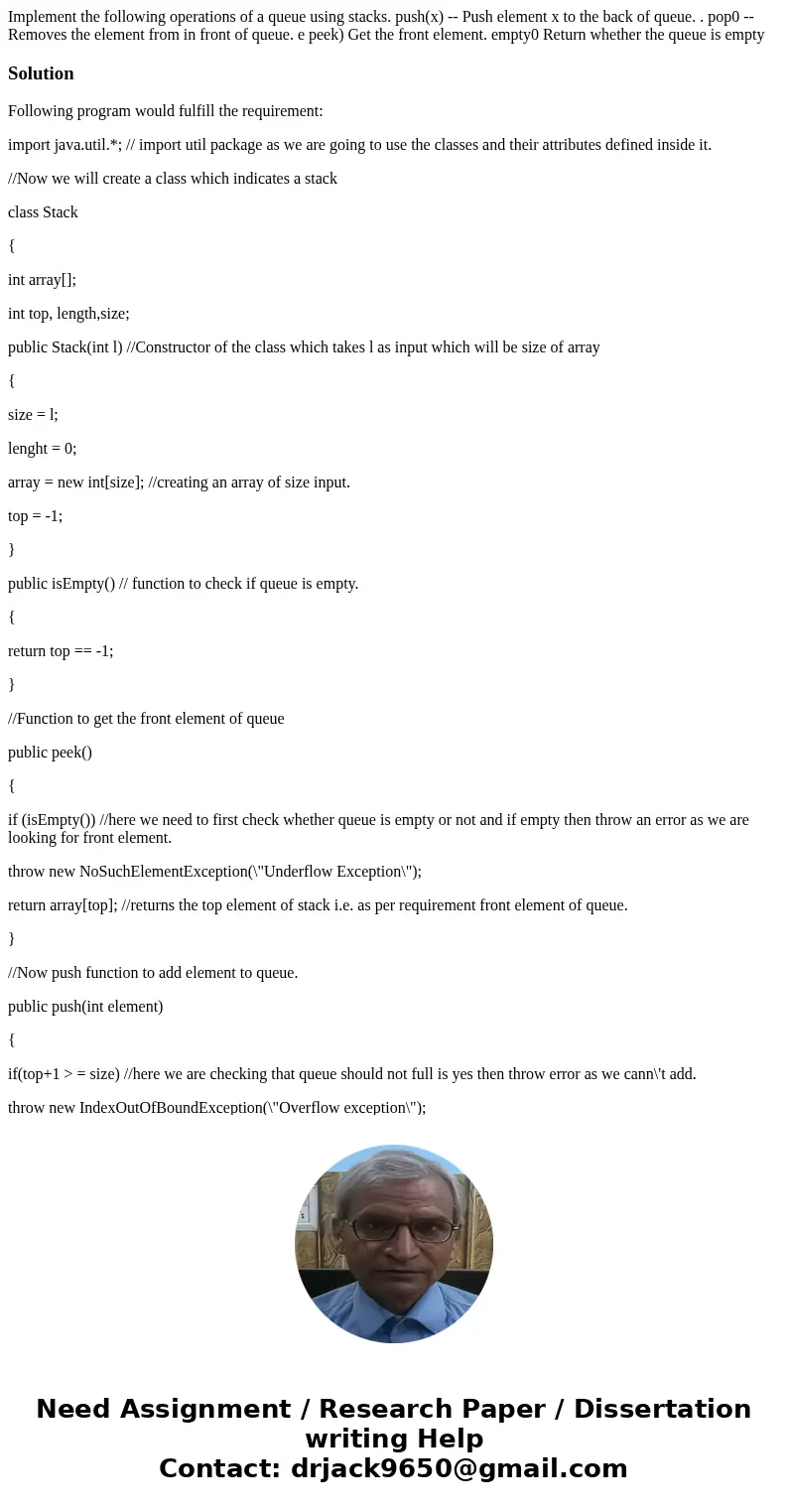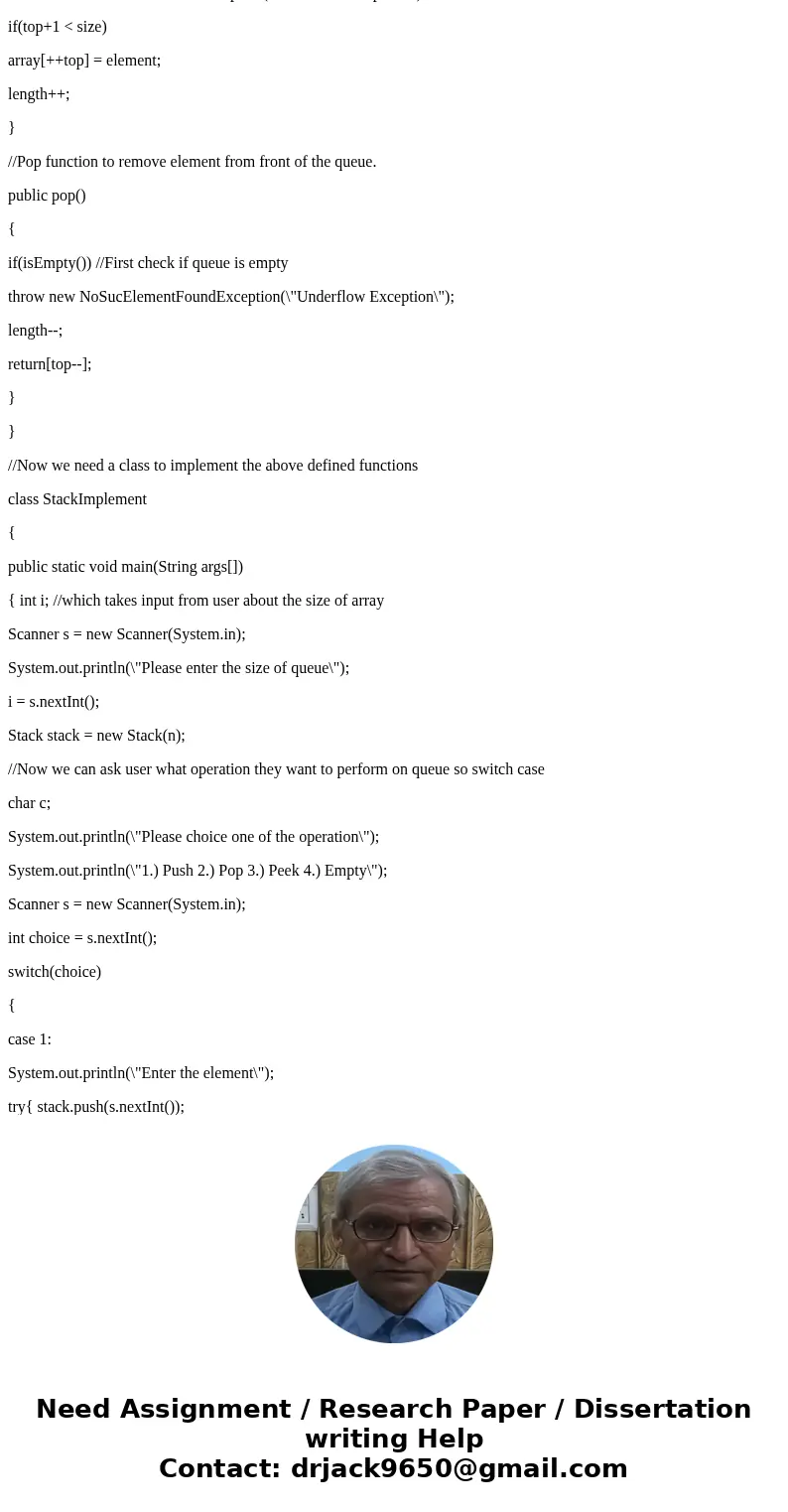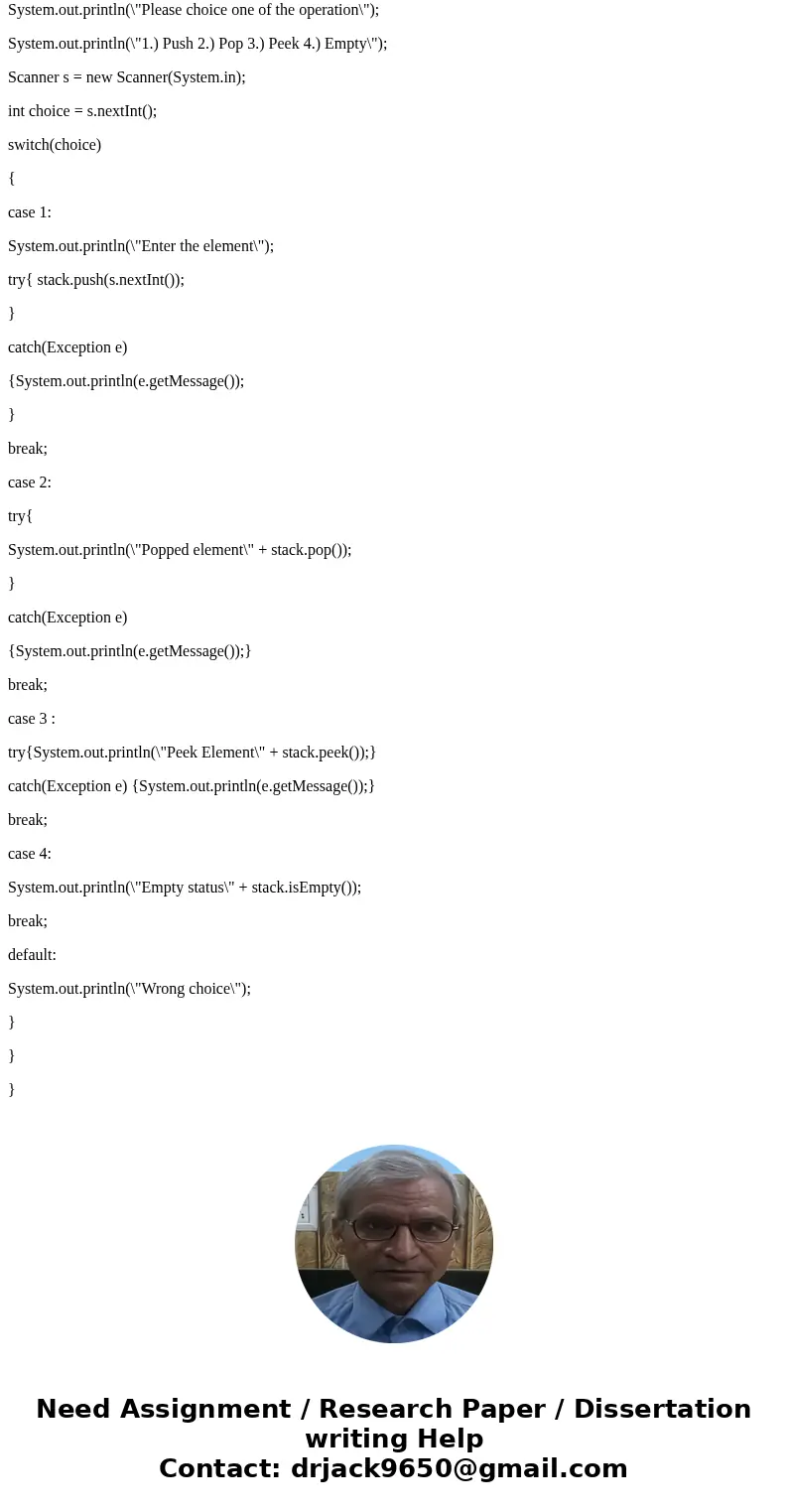Implement the following operations of a queue using stacks p
Solution
Following program would fulfill the requirement:
import java.util.*; // import util package as we are going to use the classes and their attributes defined inside it.
//Now we will create a class which indicates a stack
class Stack
{
int array[];
int top, length,size;
public Stack(int l) //Constructor of the class which takes l as input which will be size of array
{
size = l;
lenght = 0;
array = new int[size]; //creating an array of size input.
top = -1;
}
public isEmpty() // function to check if queue is empty.
{
return top == -1;
}
//Function to get the front element of queue
public peek()
{
if (isEmpty()) //here we need to first check whether queue is empty or not and if empty then throw an error as we are looking for front element.
throw new NoSuchElementException(\"Underflow Exception\");
return array[top]; //returns the top element of stack i.e. as per requirement front element of queue.
}
//Now push function to add element to queue.
public push(int element)
{
if(top+1 > = size) //here we are checking that queue should not full is yes then throw error as we cann\'t add.
throw new IndexOutOfBoundException(\"Overflow exception\");
if(top+1 < size)
array[++top] = element;
length++;
}
//Pop function to remove element from front of the queue.
public pop()
{
if(isEmpty()) //First check if queue is empty
throw new NoSucElementFoundException(\"Underflow Exception\");
length--;
return[top--];
}
}
//Now we need a class to implement the above defined functions
class StackImplement
{
public static void main(String args[])
{ int i; //which takes input from user about the size of array
Scanner s = new Scanner(System.in);
System.out.println(\"Please enter the size of queue\");
i = s.nextInt();
Stack stack = new Stack(n);
//Now we can ask user what operation they want to perform on queue so switch case
char c;
System.out.println(\"Please choice one of the operation\");
System.out.println(\"1.) Push 2.) Pop 3.) Peek 4.) Empty\");
Scanner s = new Scanner(System.in);
int choice = s.nextInt();
switch(choice)
{
case 1:
System.out.println(\"Enter the element\");
try{ stack.push(s.nextInt());
}
catch(Exception e)
{System.out.println(e.getMessage());
}
break;
case 2:
try{
System.out.println(\"Popped element\" + stack.pop());
}
catch(Exception e)
{System.out.println(e.getMessage());}
break;
case 3 :
try{System.out.println(\"Peek Element\" + stack.peek());}
catch(Exception e) {System.out.println(e.getMessage());}
break;
case 4:
System.out.println(\"Empty status\" + stack.isEmpty());
break;
default:
System.out.println(\"Wrong choice\");
}
}
}



 Homework Sourse
Homework Sourse